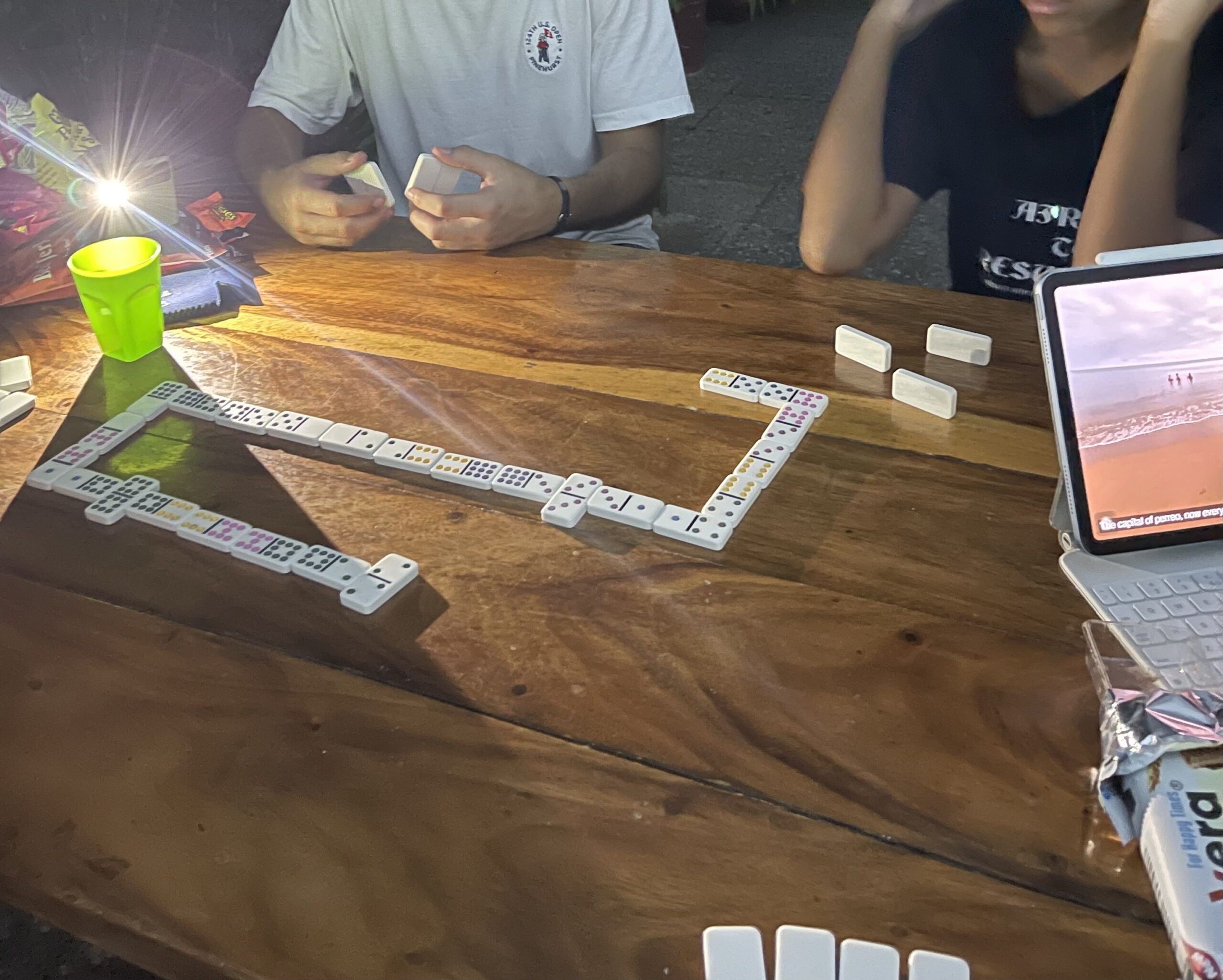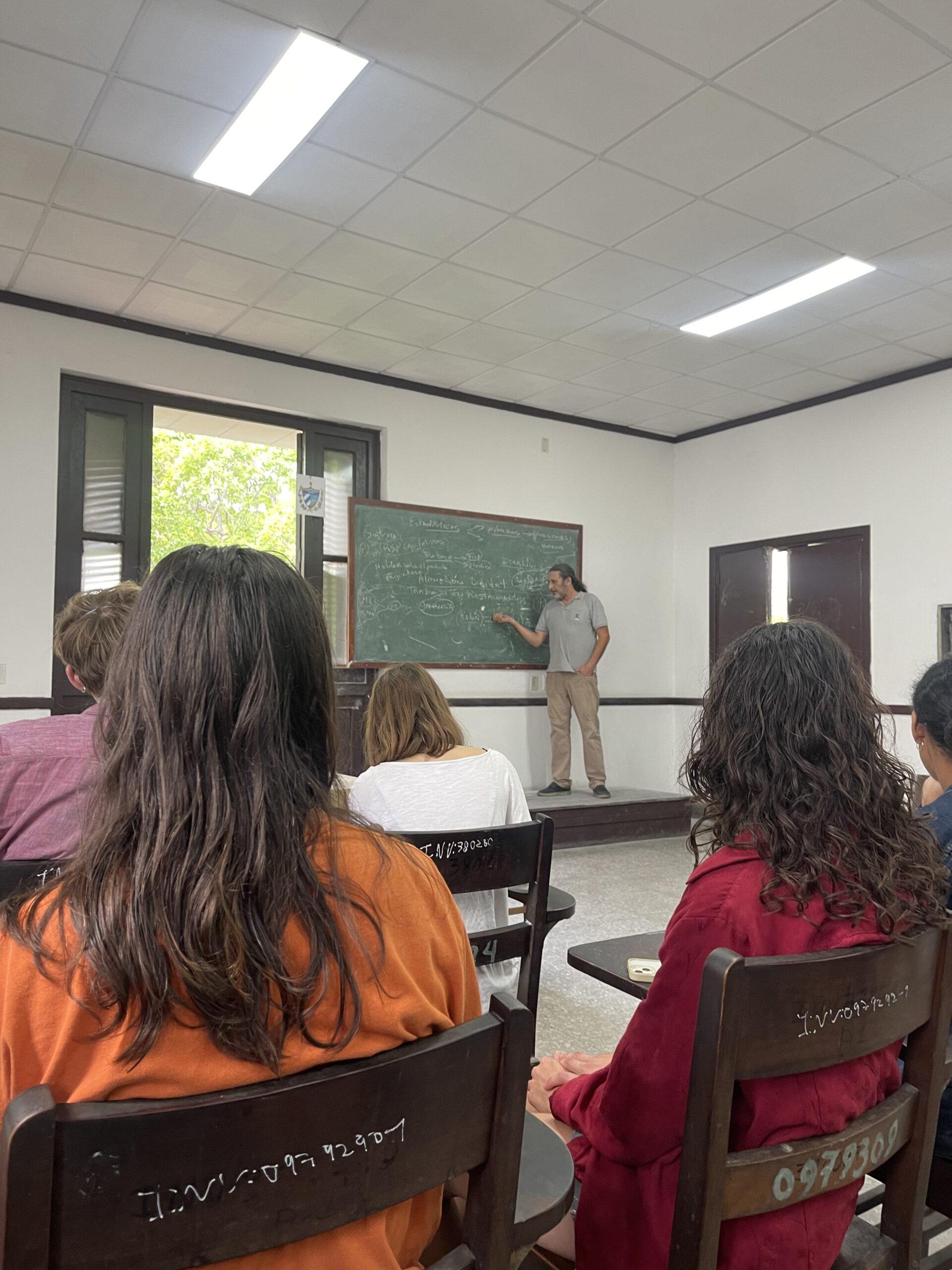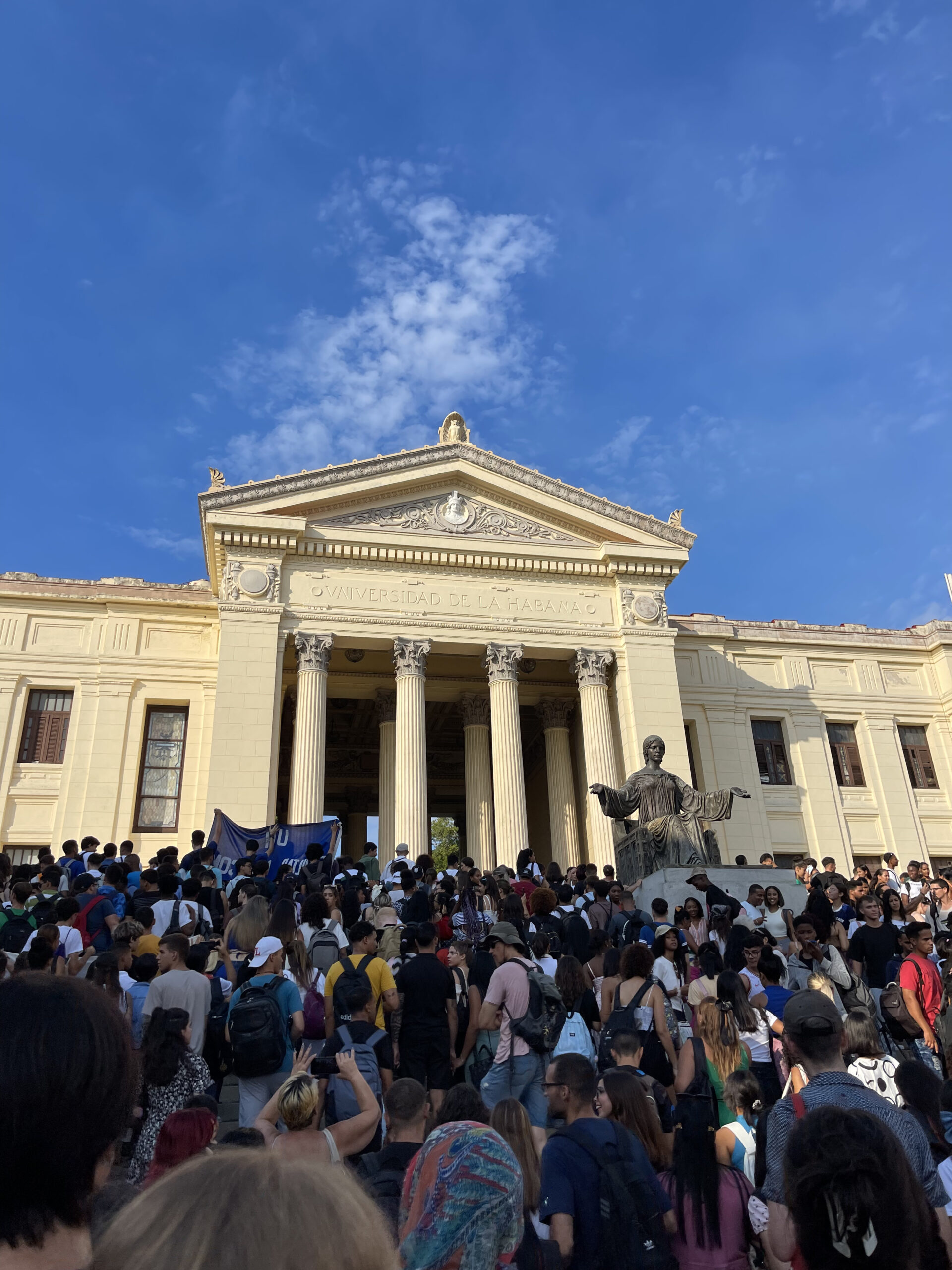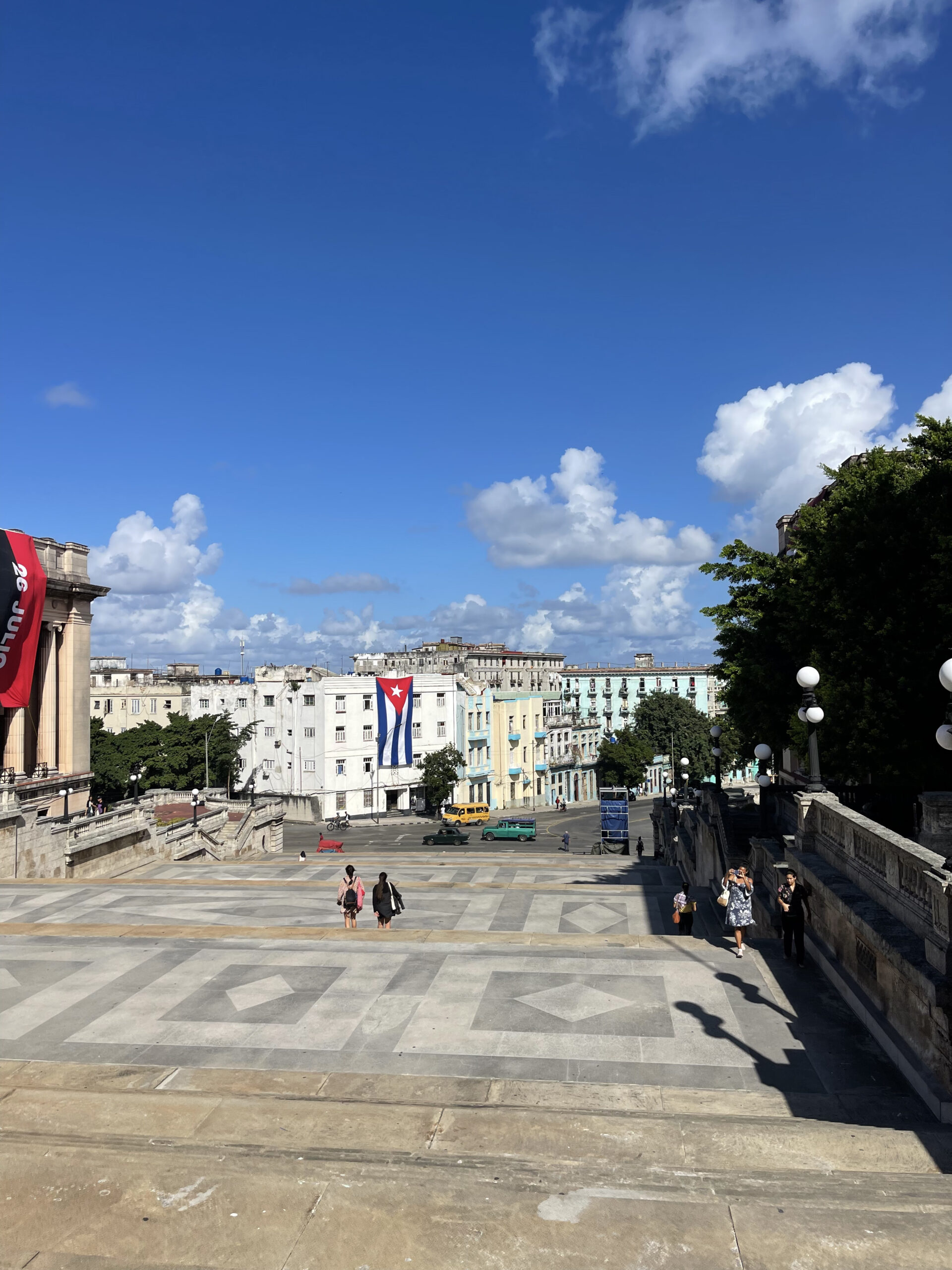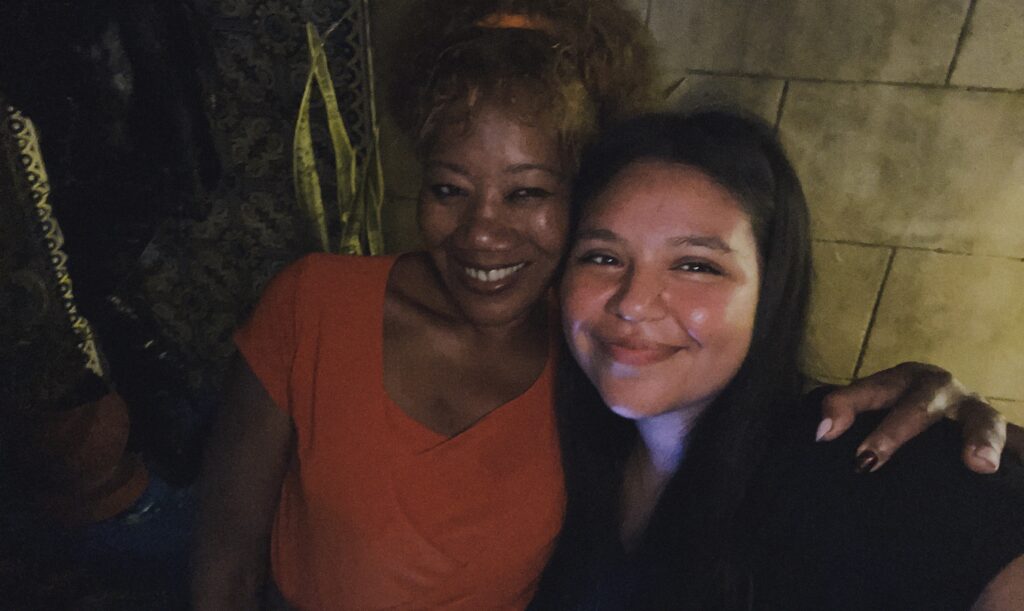
Yenifer Garcia Bermudez
CAS ’26
Law & Society and Latin American & Latinx Studies
SA: IFSA Cuba
PGRI: PEACE
Contact
Ask Me About…
Studying at the University of Havana in fully Spanish courses was one of the most unique and challenging experiences of my college journey. Although I had taken Spanish courses at Penn, nothing compared to the complexity and speed of Cuban Spanish. I had to adapt quickly, not just to the language, but to an entirely different educational system. In Cuba, the classroom experience was mostly “offline.” There were no laptops, no slides, and no Canvas. Assignments were completed on paper, and communication often happened through WhatsApp group chats instead of Canvas or Gmail. What made the experience truly unique was learning how to navigate unfamiliar academic expectations in a new cultural and linguistic environment. I learned to be resourceful and to advocate for myself in a system that operated very differently from what I was used to. It pushed me to grow both academically and personally. Adjusting to this system required a lot of patience, flexibility, and a willingness to embrace discomfort.
My Experience Abroad
Majoring in Latin American and Latinx Studies, studying in Cuba was deeply connected to both my academic and professional goals. It was important for me to go beyond textbooks and lectures and experience firsthand the history, culture, and complexity of a country like Cuba. Learning from Cuban professors and speaking with residents gave me a unique perspective on topics I had studied, such as colonialism, socialism, and US-Cuba relations, but in a way that felt real, not just theoretical. At the University of Havana, the coursework was rich with narratives of perseverance and resistance. But the most impactful lessons often came from Cuban students themselves, whose daily lives reflected the very histories I was learning about. Conversations with them, combined with course material, helped me better understand how politics, economics, and identity intersect in everyday life. Studying in Cuba reminded me of one of the most powerful themes in Latin American history: the resilience of nations shaped by colonization, imperialism, and struggle. These experiences deepened my academic interests and reinforced my commitment to pursuing a career that amplifies Latinx voices and histories, whether through law, education, or public service. Living and studying in Cuba wasn’t just a cultural immersion; it was an extension of my classroom, and it solidified my goal of using my education to support and advocate for Latinx communities across the Americas.
Other Highlights
- Taking a political economy course as an American with Cuban students, taught by an Argentine professor, was a once-in-a-lifetime experience. It quickly became one of my favorite courses, not just because of the content, but because of the powerful conversations it sparked. Our professor always welcomed input, and I learned so much from hearing my classmates’ perspectives on socialism, scarcity, and global politics. It was very enlightening to take this course in a country like Cuba, where political economy isn’t just theory, it’s daily life. The mix of voices and lived experience made this class unforgettable and deeply impactful.
- One of my favorite experiences was our excursions to other Cuban cities. Visiting Santa Clara, known as “Che City”, and standing on the grounds of the Battle of Santa Clara made history feel real. The Che Guevara Mausoleum and museum added even more depth. We also visited the Bay of Pigs and its museum, where I learned firsthand about what’s considered the first defeat of U.S. imperialism in Latin America. These trips were unforgettable and allowed me to connect what I’d studied to the actual places where history happened.
- After Hurricane Oscar hit Guantánamo, I had the opportunity to volunteer with the local coffee shop “Cuba Libro” to organize hurricane relief packages. It was incredibly rewarding to do this kind of community work during my time in Cuba. Although the media often focuses on portraying hardship and “misery” in Cuba, it rarely captures the deep sense of solidarity and mutual support that exists within Cuban communities. What I witnessed in Havana was a powerful example of people coming together to support one another, and it challenged the one-sided narratives often seen outside the country.
- One of my favorite experiences in Cuba was playing dominoes with my friends after class, before cena, and again after cena! It quickly became a daily tradition and a highlight of our time there. The competitiveness, the clatter of the fichas, and the nonstop laughter during our game nights created some of my most cherished memories. What started as a casual pastime became a meaningful ritual, one that brought us closer together and added so much joy to our everyday lives. Those moments will always stay with me.
- My time in Cuba would not have been the same without my amazing host mom, Yoli. Whether she was teaching me salsa steps, how to cook yuca rellena, or simply sharing a laugh, Yoli made Cuba feel like home. She always welcomed my friends and I into her space, turning her home into our gathering spot for dominoes, laughter, and comfort. One of the most important lessons Yoli taught us was to be resilient. She made us memorize her signature motivational quote: “Yo puedo, yo quiero, y yo me lo merezco” (“I can, I want it, and I deserve it”). Yoli embodied the resilient Cuban spirit; her infectious joy and strength, despite life’s challenges, left a lasting impact on me. She inspired me in ways I’ll carry forever.
